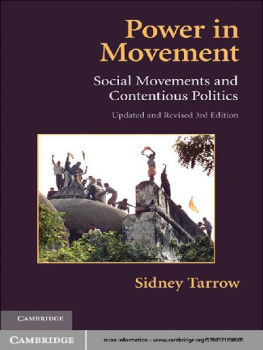Evolution of the Japanese
SIDNEY L. GULICK, M.A.
Missionary of the American Board in Japan
NEW YORK CHICAGO TORONTO
Fleming H. Revell Company
LONDON AND EDINBURGH
New York: 158 Fifth Avenue
Chicago: 63 Washington Street
Toronto: 27 Richmond Street, W.
London: 21 Paternoster Square
Edinburgh: 30 St. Mary Street
THE GROWTH OF THE KINGDOM OF GOD
By
SIDNEY L. GULICK, M.A.
Illustrated with Twenty-six Diagrams 12 mo, Cloth, $1.50
Commends itself to thoughtful, earnest men of any nation as a most valuable missionary paper. Mr. Gulick traces the Christian religion through history and up to now. The survey is calm, patient, thoroughly honest, and quietly assured.
--Evangelist.
FLEMING H. REVELL COMPANY
Publishers
PREFACE
The present work is an attempt to interpret the characteristics of modern Japan in the light of social science. It also seeks to throw some light on the vexed question as to the real character of so-called race-nature, and the processes by which that nature is transformed. If the principles of social science here set forth are correct, they apply as well to China and India as to Japan, and thus will bear directly on the entire problem of Occidental and Oriental social intercourse and mutual influence.
The core of this work consists of addresses to American and English audiences delivered by the writer during his recent furlough. Since returning to Japan, he has been able to give but fragments of time to the completion of the outlines then sketched, and though he would gladly reserve the manuscript for further elaboration, he yields to the urgency of friends who deem it wise that he delay no longer in laying his thought before the wider public.
To Japanese readers the writer wishes to say that although he has not hesitated to make statements painful to a lover of Japan, he has not done it to condemn or needlessly to criticise, but simply to make plain what seem to him to be the facts. If he has erred in his facts or if his interpretations reflect unjustly on the history or spirit of Japan, no one will be more glad than he for corrections. Let the Japanese be assured that his ruling motive, both in writing about Japan and in spending his life in this land, is profound love for the Japanese people. The term "native" has been freely used because it is the only natural correlative for "foreign." It may be well to say that neither the one nor the other has any derogatory implication, although anti-foreign natives, and anti-native foreigners, sometimes so use them.
The indebtedness of the writer is too great to be acknowledged in detail. But whenever he has been conscious of drawing directly from any author for ideas or suggestions, effort has been made to indicate the source.
Since the preparation of the larger part of this work several important contributions to the literature on Japan have appeared which would have been of help to the writer, could he have referred to them during the progress of his undertaking. Rev. J.C.C. Newton's "Japan: Country, Court, and People"; Rev. Otis Cary's "Japan and Its Regeneration"; and Prof. J. Nitobe's "Bushido: The Soul of Japan," call for special mention. All are excellent works, interesting, condensed, informative, and well-balanced. Had the last named come to hand much earlier it would have received frequent reference and quotation in the body of this volume, despite the fact that it sets forth an ideal rather than the actual state of Old Japan.
Special acknowledgment should be made of the help rendered by my brothers, Galen M. Fisher and Edward L. Gulick, and by my sister, Mrs. F.F. Jewett, in reading and revising the manuscript. Acknowledgment should also be made of the invaluable criticisms and suggestions in regard to the general theory of social evolution advocated in these pages made by my uncle, Rev. John T. Gulick, well known to the scientific world for his contributions to the theory as well as to the facts of biological evolution.
S.L.G.
MATSUYAMA, JAPAN.
CONTENTS
Occidental conceptions of the recent history of JapanJapan seems to be contradicting our theory of national evolutionSimilarities of ancient and modern JapanJapanese evolution is "natural"The study of Japanese social evolution is of unusual interest, because it has experienced such marked changesBecause it is now in a stage of rapid growthAnd is taking place before our eyesAlso because here is taking place a unique union of Occidental and Oriental civilizationsComparison between India and Japan, 23
Mythology and traditionAuthentic historyOld JapanThe transition from Old to New JapanNew JapanCompelled by foreign nations to centralizeIdeals and material instruments supplied from abroadExuberant Patriotism"Ai-koku-shin," 35
Is Japan making progress?Happiness as a criterionThe oppressive rule of militarismThe emptiness of the ordinary lifeThe condition of woman"The Greater Learning for Woman"DivorceProgress definedDeficiency of the hedonistic criterion of progress, 52
Progress a modern conception and idealHow was the "cake of custom" broken?"Government by discussion" an insufficient principle of progressTwo lines of progress, Ideal and MaterialThe significance of Perry's coming to JapanEffect on Japan of Occidental ideasThe material element of progressMistaken praise of the simplicity of Old Japan, L. HearnThe significance of the material element of civilizationMastery of natureThe defect of Occidental civilization, 61
Our main questionIllustrationsJapanese students abroadSensitiveness to ridiculeAdvantages and disadvantages of this characteristicNational sensitiveness to foreign criticismNudityFormosaMental and physical flexibilityAdjustabilitySome apparent exceptionsChinese ideographsHow account for these characteristics, 72
The Japanese are emotionalAn illustration from politicsThe tendency to run to extremesDanger of overemphasizing this tendencyJapanese silent dissentMen of balance in public lifeAbdicationGubbins quotedIs abdication an inherent trait? 82
Popular national heroesThe craving for modern heroesTownsend Harris's insight into Oriental characterHero-worship an obstacle to missionary workCapt. JaynesAn experience in Kumamoto"The sage of Omi""The true hero"Moral heroes in JapanThe advantage and disadvantage of hero-worshipModern moral heroesHero-worship depends on personality and idealismThe new social order is producing new ideals and new heroes, 89
Japanese love for childrenChildren's festivalsToys and toy-storesDo Japanese love children more than Americans do?Importance in Japan of maintaining the family lineThe looseness of the Japanese family tieEarly cessation of demonstrative affectionInfanticide, 96
Affection between husband and wifeOccidental and Oriental estimate of woman contrastedThis a subject easily-misunderstoodKissing a social habit unknown in JapanDemonstrative affection a social, not a racial characteristicSome specific illustrations, Dr. NeesimaA personal experienceIllegitimate childrenFraudulent registrationAdult adoptionDivorceMonogamy, polygamy, and prostitutionRace character, social order, and affectionPosition of womenThe social order and affectionThe social order and the valuation of man and womanThe new social order and the valuation of manThe spread of Christian ideals and the re-organization of the family, 102








